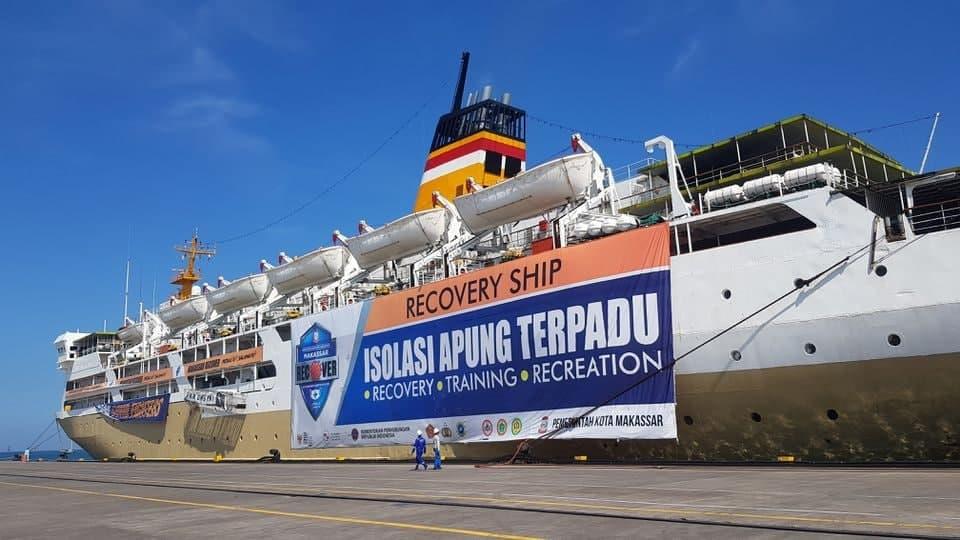MAKASSAR, Indonesia, Aug 13 (Reuters) - A vehicle with a flashing siren and "Makassar COVID Hunter" written on the side pulls up to a ship docked at a jetty in the Indonesian port city of Makassar, and masked COVID-19 patients carrying bags board the boat.
This ship, called the KM Umsini, used to ply a route ferrying up to 2,000 passengers between Indonesia's island cities. Now, it has been turned into an isolation centre for COVID-19 patients with mild symptoms, amid the spread of the highly infectious Delta coronavirus variant.
Over 800 beds have been installed and sixty medical workers take turns in shifts to help patients recover.
The patients have to spend 10 days in isolation, during which time they undergo routine medical check-ups and can partake of exercise to music and fishing from the ship's deck.
"I chose to isolate here because I think this is unique and it's a new thing in Makassar," said one patient, Mitha Andriyanti. "Also the location is far from the city, so we won't spread the coronavirus to others."
Indonesia, which has one of Asia's worst COVID-19 epidemics, implemented restricted mobility on its Java and Bali islands in early July to stem the spread of the Delta variant, and has since extended this to other areas with high infection rates.
This has impacted the more than 8.8 million people who live in South Sulawesi province, where Makassar is located. Makassar has seen a surge in COVID-19 cases since early July, which it has scrambled to contain with limited supplies and facilities.
"We recorded today at least 3,000 people with COVID-19 but no symptoms are self-isolating at home and we can't trace their homes," said Makassar Mayor Mohammad Ramdhan Pomanto.
"This is very dangerous, that's why we are using this integrated floating isolation on the Umsini ship as part of our effort while we look for those people and persuade them to come to this facility."





